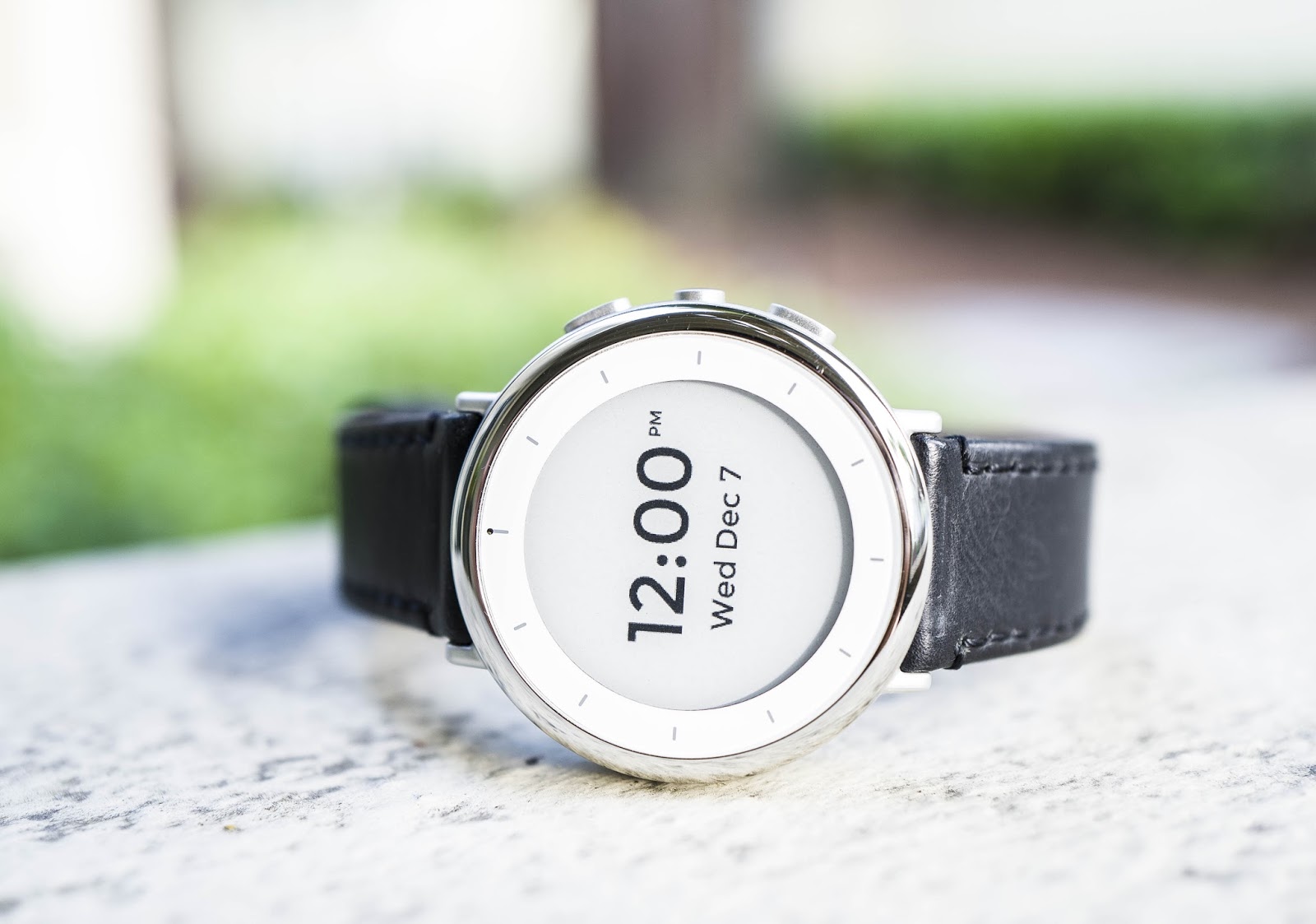The Verily Study Watch passively captures health data for continuous care platforms and clinical research. Key features described by the company include:
- Multiple physiological and environmental sensors are designed to measure relevant signals for studies spanning cardiovascular, movement disorders, and other areas. Examples include electrocardiogram (ECG), heart rate, electrodermal activity, and inertial movements.
- A long battery life of up to one week in order to drive better user compliance during longitudinal studies.
- Large internal storage and data compression allow the device to store weeks’ worth of raw data, thus relaxing the need to frequently sync the device.
- A powerful processor supports real time algorithms on the device.
- The firmware is designed to be robust for future extensions, such as over-the-air updates, new algorithms, and user interface upgrades.
- The display is always on so that time is always shown. The display is low power and high resolution for an appealing look and a robust user interface. Note: currently, only time and certain instructions are displayed. No other information is provided back to the user.
The watch will be used in Verily’s current and forthcoming studies, such as the Personalized Parkinson’s Project, meant to track progression, and the Baseline study, meant to understand transitions between health and disease.
Join ApplySci at Wearable Tech + Digital Health + NeuroTech Boston – Featuring: Joi Ito, Ed Boyden, Roz Picard, George Church, Tom Insel, John Rogers, Jamshid Ghajar, Phillip Alvelda and Nathan Intrator – September 19, 2017 at the MIT Media Lab
